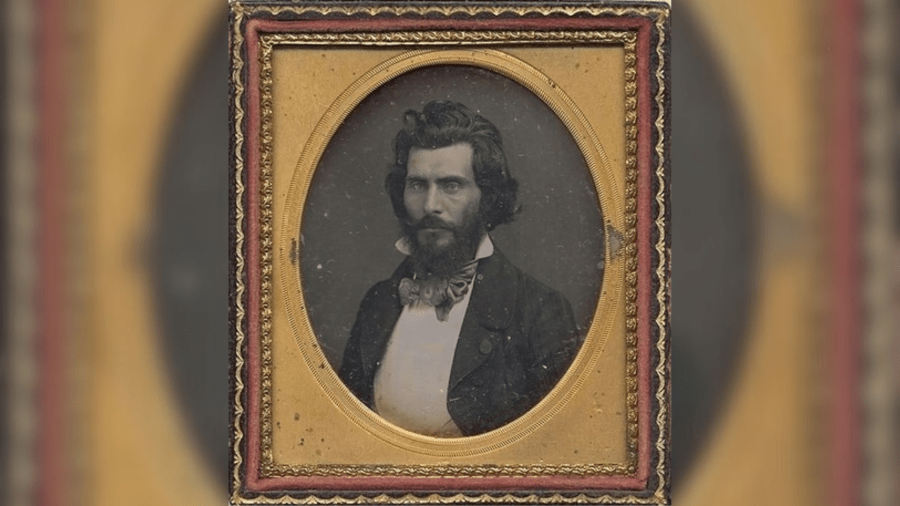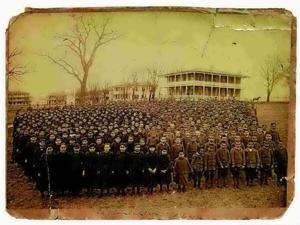Education
USU Professor Uncovers Lost Cherokee Poem, Challenging History

A professor at Utah State University has made a significant discovery that could reshape the understanding of early Native American literature. David C. Hurst recently uncovered a previously forgotten poem written by a Cherokee author in the late 1800s. This revelation challenges long-held beliefs about the origins of published works by Native American writers, particularly the first American Indian novelist.
The poem, attributed to Sequoyah, a prominent Cherokee leader and the creator of the Cherokee syllabary, was initially published in 1885 but had been largely overlooked by scholars. Hurst’s research highlights the importance of this piece within the wider context of Native American literature, which has often been marginalized in literary history.
Hurst’s discovery arose from a meticulous examination of historical archives in North Carolina and Oklahoma, where he found references to the poem in letters and newspaper articles from the period. According to Hurst, the poem reflects the cultural and social dynamics of Cherokee life during a time of significant upheaval and change.
“The poem reveals a rich tapestry of Cherokee identity and resilience,” Hurst stated. “It serves as a crucial reminder of the literary contributions of Native Americans that have been silenced or forgotten over time.” His work sheds light on the broader narrative of Indigenous voices in American literature, which has often been overshadowed by mainstream narratives.
The significance of Hurst’s findings extends beyond literary circles. They also resonate with the Cherokee Nation and its efforts to reclaim and preserve its cultural heritage. The Cherokee Nation has long advocated for recognition of its historical narratives and contributions to American society. Hurst’s uncovering of this poem adds a vital piece to that ongoing dialogue.
As scholars and literary enthusiasts delve into the implications of this discovery, it has sparked renewed interest in the works of early Native American writers. Hurst’s research not only highlights the literary talent present within Indigenous communities but also encourages a reevaluation of the historical narratives that have shaped perceptions of Native American literature.
This rediscovery comes at a crucial time when the importance of diverse voices in literature is being increasingly acknowledged. The poem not only enriches the literary canon but also serves as a testament to the enduring legacy of the Cherokee people and their stories.
In the coming months, Hurst plans to publish his findings in a comprehensive study aimed at bringing greater awareness to the contributions of Native American authors. The work is expected to stimulate further research and discussion about the literary achievements of Indigenous peoples and their rightful place in the history of American literature.
The resurgence of interest in this Cherokee poem is a reminder of the ongoing journey to acknowledge and celebrate the rich tapestry of cultures that contribute to the narrative of America. Hurst’s efforts exemplify how rediscovering history can lead to a deeper understanding of identity, resilience, and the power of storytelling.
-

 Technology4 months ago
Technology4 months agoDiscover the Top 10 Calorie Counting Apps of 2025
-

 Health2 months ago
Health2 months agoBella Hadid Shares Health Update After Treatment for Lyme Disease
-

 Health3 months ago
Health3 months agoErin Bates Shares Recovery Update Following Sepsis Complications
-

 Technology3 weeks ago
Technology3 weeks agoDiscover 2025’s Top GPUs for Exceptional 4K Gaming Performance
-

 Technology4 months ago
Technology4 months agoDiscover How to Reverse Image Search Using ChatGPT Effortlessly
-

 Technology2 months ago
Technology2 months agoElectric Moto Influencer Surronster Arrested in Tijuana
-

 Technology4 months ago
Technology4 months agoMeta Initiates $60B AI Data Center Expansion, Starting in Ohio
-

 Technology4 months ago
Technology4 months agoRecovering a Suspended TikTok Account: A Step-by-Step Guide
-

 Health4 months ago
Health4 months agoTested: Rab Firewall Mountain Jacket Survives Harsh Conditions
-

 Lifestyle4 months ago
Lifestyle4 months agoBelton Family Reunites After Daughter Survives Hill Country Floods
-

 Technology3 months ago
Technology3 months agoUncovering the Top Five Most Challenging Motorcycles to Ride
-

 Technology4 weeks ago
Technology4 weeks agoDiscover the Best Wireless Earbuds for Every Lifestyle





















